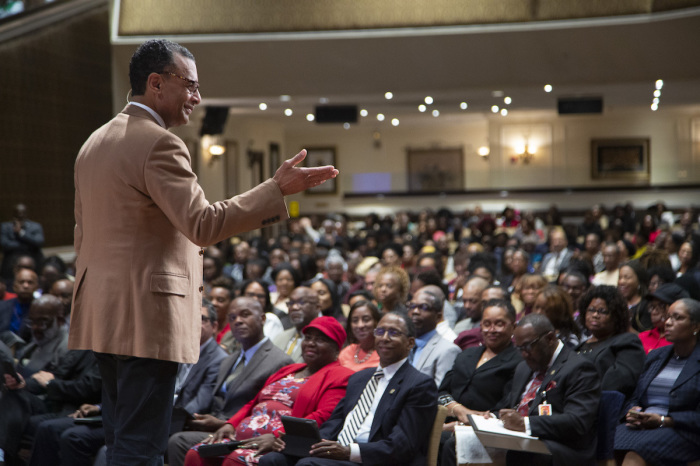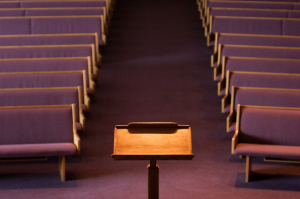Americans prefer churches with names that are nondenominational: study

In continuation of a cultural shift researchers have previously documented as a growing rejection of organized religion, a new study from Lifeway Research shows Americans are least likely to dismiss churches branded as nondenominational.
The online study of 1,005 Americans conducted Sept. 3-14, 2021, using a national pre-recruited panel, shows that only 33% of U.S. adults assumed that a church is not for them when the term nondenominational is reflected in the name.
For churches with the term Pentecostal, more than half, 51%, of respondents assumed the church would not be for them. Seven other denominations triggered a similar response within a range of 8% or less.
Some 47% of respondents said churches with the term Methodist or Lutheran would not be for them, while 48% of them said the same for churches with the term Catholic in the name. For church names with the terms Southern Baptist or Presbyterian, an equal 46% of respondents assumed those churches would not be for them. Some 46% of respondents rejected churches with the term Assemblies of God in the name, while 43% said churches with the Baptist label attached would not be for them.
“Church names vary greatly,” Scott McConnell, executive director of Lifeway Research, said in a statement. “Names including St. Peter, Trinity, Crossroads and Presbyterian reflect biblical people, theology, modern imagery or references to the branch of Christianity the church is tied to. Most people have preexisting impressions of denominational groups when they see them in a church name or description.”
Pew Research analysis published in 2015 showed that since 2007, the share of Evangelical Protestants who identify with Baptist denominations shrank from 41% to 36%. The share of Evangelicals identifying with nondenominational churches also grew from 13% to 19% over the period.
In 2017, a Gallup study showed how Americans were increasingly choosing to not identify with any Christian denomination or religion. The study found that the share of Americans who identify with a specific Protestant denomination fell from 50% in 2000 to 30% in 2016.
Robin Veldman, Texas A&M assistant professor of religious studies, explained in a report in The Battalion that the attitude of Americans toward nondenominational churches is partly a reflection of the movement away from organized religion, particularly among younger generations.
“I think people are moving away from institutionalized religion. They don’t necessarily like the denominational brand,” Veldman said. “Then there are people who are so much not into institutions that they’re leaving churches altogether. They may still be religious, but they’re not attending church.”
Matt Morton, a teaching pastor at Grace Bible Church Creekside in College Station, Texas, said many people who attend nondenominational churches often report themselves as being religiously “unaffiliated,” and they are often included in research as “nones” along with atheists and agnostics.
“You have this increase in millennials who say they don’t belong anywhere in particular,” Morton said. “Those people are not saying they’re totally irreligious. Some of them are saying, ‘I am religious. I do like to go to church, but I don’t fit within any of the boxes.’”





























